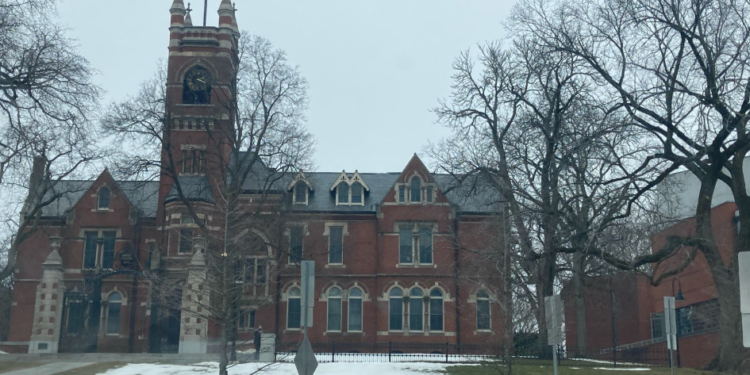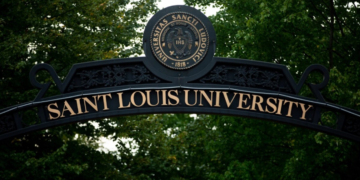Dec 15, 2024 Story by: Editor
After extensive deliberation, the Northampton Reparations Commission has unveiled findings that implicate certain institutions in financing and perpetuating racist property deeds in Northampton, both historically and in more recent years.
In its preliminary report, the commission revealed the discovery of approximately 240 property deeds in Northampton containing explicit or coded racist covenants, some recorded as recently as 2020. These covenants include language prohibiting the sale or rental of properties to “colored persons” and other ethnic groups. While such restrictions became legally unenforceable following the 1968 federal Fair Housing Act and comparable state laws, the commission emphasized that these covenants likely discouraged Black homebuyers from entering predominantly white neighborhoods.
“Without financing, most of these real estate transactions could not have occurred,” the commissioners noted in their report.
The commission traced most of the racially restrictive covenants to two Northampton property owners, Charles Sauter and Champion Swift, spanning the period between 1923 and 1947. Financial institutions, however, have continued to perpetuate this language by financing deeds that replicate or reference these restrictions from older deeds.
“These restrictive covenants evidence institutionalized and systemic racism that was apparently accepted by and acceptable to major institutions, e.g., banks and other lending institutions, in the city as well as prominent citizens, including lawyers,” the report stated.
The report identified local institutions such as Easthampton Savings Bank and Smith College, as well as multinational banks like Citigroup and Bank of America, among those complicit.
Tensions arose during public commission meetings about whether the institutions listed should be contacted prior to releasing the report and whether the commissioner responsible for the research would share findings with the entire group. Ultimately, the institutions were not contacted before the report’s release. At the commission’s Dec. 3 meeting, discussions centered on community engagement and filling commission vacancies, with little mention of the implicated institutions.
“I find it fascinating and somewhat shocking that financial institutions I ascribe to have this history,” commented Commissioner Rachel Naismith. “It’s nice to see some hard names and facts there.”
One example highlighted by the report was Florence Bank, a regional lender in Western Massachusetts, which has financed at least 35 mortgages with racist covenants since 1936. As recently as 2018, a deed financed by the bank referenced “restrictions of record,” including a 1928 deed containing the language: “Said premises shall not be sold to or occupied by any colored persons.”
The commission also found that while many older deeds explicitly barred sales or occupancy by Black individuals, some recent deeds continued to reference these earlier restrictions. Others directly included coded racist language, such as a 2015 mortgage deed financed by Florence Bank and Smith College that prohibited sales to or occupancy by “any person or class of persons whose ownership or occupancy would be injurious to this locality for residential purposes.”
In response to these findings, the commission urged the named institutions to actively participate in Northampton’s yet-to-be-detailed reparative efforts. At the Dec. 3 meeting, commissioner Marsha Morris expressed concern over the lack of meaningful community engagement in the commission’s work thus far. She also highlighted that recommendations have largely been symbolic, such as renaming streets, and called for greater efforts to involve the public.
Other institutions listed in the report included Bank of America, First National Bank of Northampton, Greenfield Cooperative Bank/Northampton Cooperative Bank, Greenfield Savings Bank, PeoplesBank, The Smith Charities, TD Bank, UMassFive College Credit Union, and Wells Fargo Home Mortgage, among others.
When approached for comment, Jacqueline Charron, senior vice president of strategy & implementation at Greenfield Cooperative Bank, stated that the bank “follows Federal and State Fair Lending related laws and regulations,” including the 1968 Fair Housing Act. She acknowledged that the bank’s most recent mortgage deed containing a racist covenant was recorded in 1976, referencing two earlier deeds with such language.
Matthew Bannister, senior vice president of marketing and corporate responsibility at PeoplesBank, said the bank is “working to uncover specifics on the transaction in question and will reserve any comments until we can determine more.”
No other institutions responded to The Shoestring’s requests for comment by the time of publication.
The commission submitted its preliminary report to the City Council on Thursday but did not address how to hold the implicated institutions accountable.
Morris, along with commissioners Renika Montgomery-Tamakloe and Ousmane Power-Greene, emphasized the importance of engaging Northampton’s Black community in shaping the report’s recommendations. They also proposed extending the timeline for the commission’s final report into the summer to allow for more comprehensive outreach.
“If you are really serious about the research work touching our community, it’s going to take us time,” Morris told councilors. “We haven’t talked to working-class people, we haven’t talked to the poor. I don’t know how we can even think about going forward without doing that.” Source: The Shoe String

















